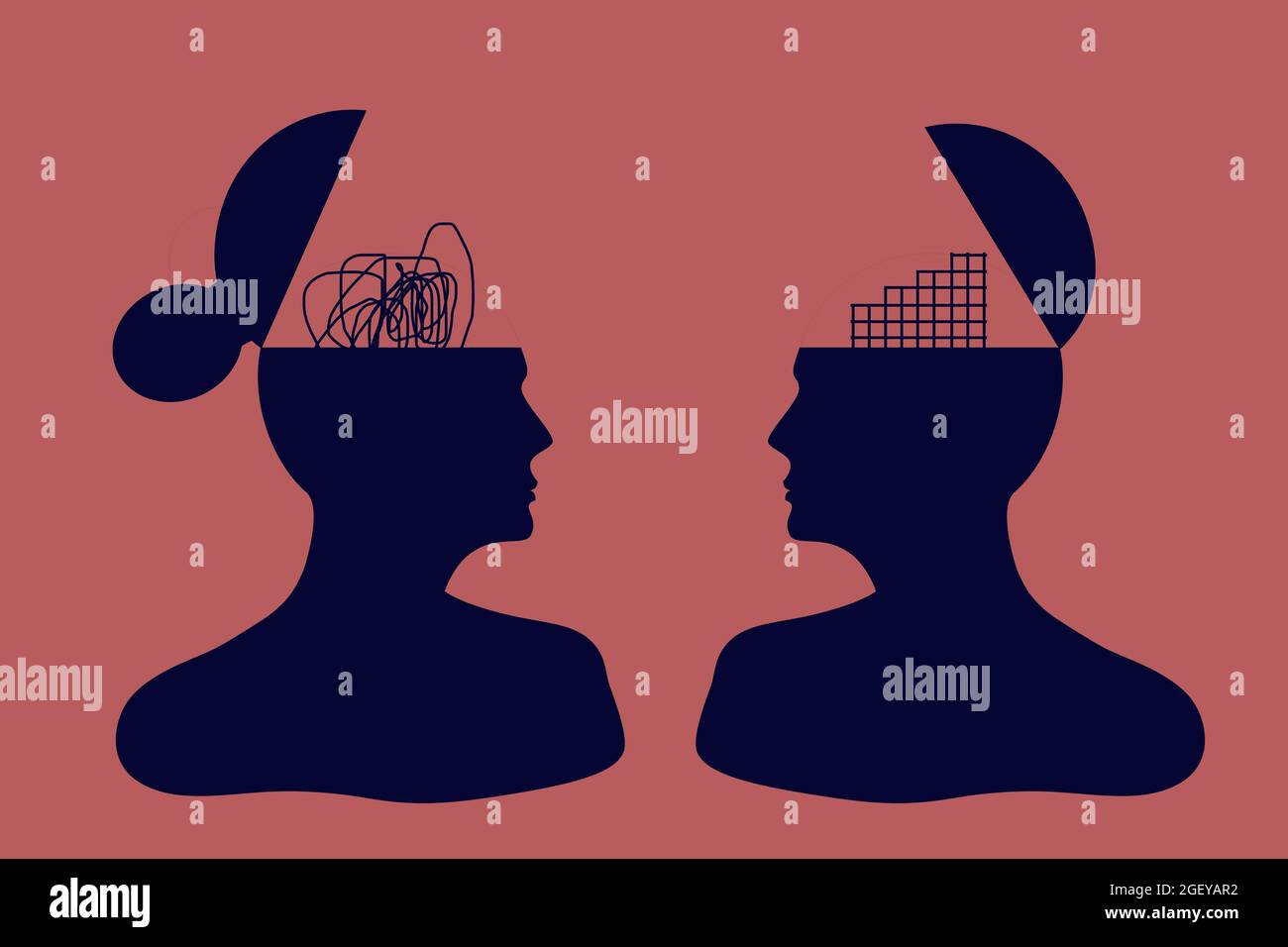Understanding how men think is a complex and fascinating topic that has intrigued researchers for decades. The way men process information, make decisions, and interact with others is influenced by a variety of factors, from biology to culture.

By understanding how men think, we can improve communication, reduce misunderstandings, and build stronger relationships. Whether you're in a personal or professional setting, understanding the male perspective can help you navigate complex social situations and achieve your goals more effectively.
There are several key differences between male and female brains that affect the way men think. For example, the male brain tends to be larger overall, with a greater volume of gray matter. This may contribute to better spatial reasoning and problem-solving abilities.
Additionally, the male brain is wired differently in terms of communication between the two hemispheres. This may lead to a more compartmentalized thinking style, with a focus on individual tasks rather than holistic thinking. Understanding these differences can help us appreciate the unique strengths and weaknesses of the male brain.
It's no secret that men and women think and act differently. But while social and cultural factors can shape behavior, biology also plays a crucial role. From genes to hormones, subtle differences in the male and female brain can affect everything from decision-making to risk-taking.
Masculinity and Identity
Traditional ideas of masculinity often emphasize strength, dominance, and emotional suppression. But in today's more diverse society, men are seeking new ways to define themselves and their roles. From stay-at-home dads to sensitive poets, modern masculinity is becoming more inclusive and empowering. Men are bombarded with messages about how to behave and what is considered "manly." These societal pressures can affect everything from career choices to self-esteem, and can lead to toxic behavior and limiting beliefs. Example, "Boys don't cry." "Man up." "Real men don't eat quiche." Whether it's in the media, family, or peer groups,

Emotional Expression
Showing vulnerability: Many men are taught to hide or downplay their emotions, which can lead to problems with depression, anxiety, and self-esteem. Learning to talk about their feelings, process emotions, and seek support can be challenging but rewarding.
The "angry" stereotype: While women may be accused of being "too emotional," men are often seen as "too angry." From road rage to political behavior, men's displays of anger can be both misunderstood and used to mask deeper emotional issues. Learning healthy ways to express frustration and deal with conflict is an important part of emotional intelligence.
Sexuality and Attraction
From Hollywood heartthrobs to sports stars, men are often judged (and judge themselves) on their physical appearance and sex appeal. But attractiveness isn't just about muscles and height—confidence, humor, and intelligence can be equally important. Understanding the complex factors that influence attraction can help men feel more comfortable in their own skin and navigate the dating world.
Men are often portrayed as the initiators and aggressors in romantic relationships. But real-life connections require honesty, vulnerability, and emotional connection, as well as physical attraction. Developing healthy communication skills and understanding the needs of partners can lead to more fulfilling and lasting relationships.
Communication Differences
Nonverbal cues: Men are often accused of being "bad communicators" or "emotionally distant," but this may simply be because they use less obvious nonverbal cues than women. From facial expressions to body language, learning to read and use these signals can help avoid misunderstandings and build trust.
Direct vs. indirect: Men and women often have different communication styles when it comes to expressing needs and desires. While women may use "hints" or subtle suggestions to get what they want, men may be more direct and straightforward. Understanding and respecting these differences can lead to more effective communication and better relationships.
Mental Health Disparities
Risk factors for men: Research shows that men are less likely to seek help for mental health issues than women, despite experiencing higher rates of suicide, addiction, and other problems. Stigma, shame, and a lack of access to appropriate resources can all contribute to this disparity. Finding supportive networks, learning to recognize warning signs, and seeking professional help can make a difference.
Addressing toxic masculinity: From homophobia to aggression, traditional ideas of masculinity can contribute to a range of mental health problems for both men and those around them. Challenging these harmful beliefs and behaviors can be uncomfortable but essential for building healthier communities and relationships.
Impact on Relationships
From family dynamics to cultural norms, men's early experiences can have a lasting impact on their relationships as adults. Unlearning harmful messages and behaviors can be a lifelong process, but it can lead to more authentic and satisfying connections.
Also, for many men, emotional intimacy can be more daunting than physical intimacy. Sharing feelings, being vulnerable, and listening to partners can be difficult when traditional ideas of masculinity emphasize strength and stoicism. Building trust and practicing communication skills can help overcome these barriers.
In long-term relationships, maintaining a strong emotional connection can be difficult but rewarding. From communication to shared activities to acts of kindness, finding ways to stay connected and supportive is crucial for lasting happiness.
In conclusion, understanding how men think is an important topic that can benefit us in many areas of life. By appreciating the unique strengths and weaknesses of the male brain, we can improve communication, reduce misunderstandings, and build stronger relationships.
It's important to approach this topic with an open mind and recognize that there is no one-size-fits-all answer to how men think. Rather, it's a complex and multifaceted topic that requires ongoing exploration and dialogue.



 Sompaonline.com offers its reading audience with a comprehensive online source for up-to-the-minute news about politics, business, entertainment and other issues in Ghana
Sompaonline.com offers its reading audience with a comprehensive online source for up-to-the-minute news about politics, business, entertainment and other issues in Ghana